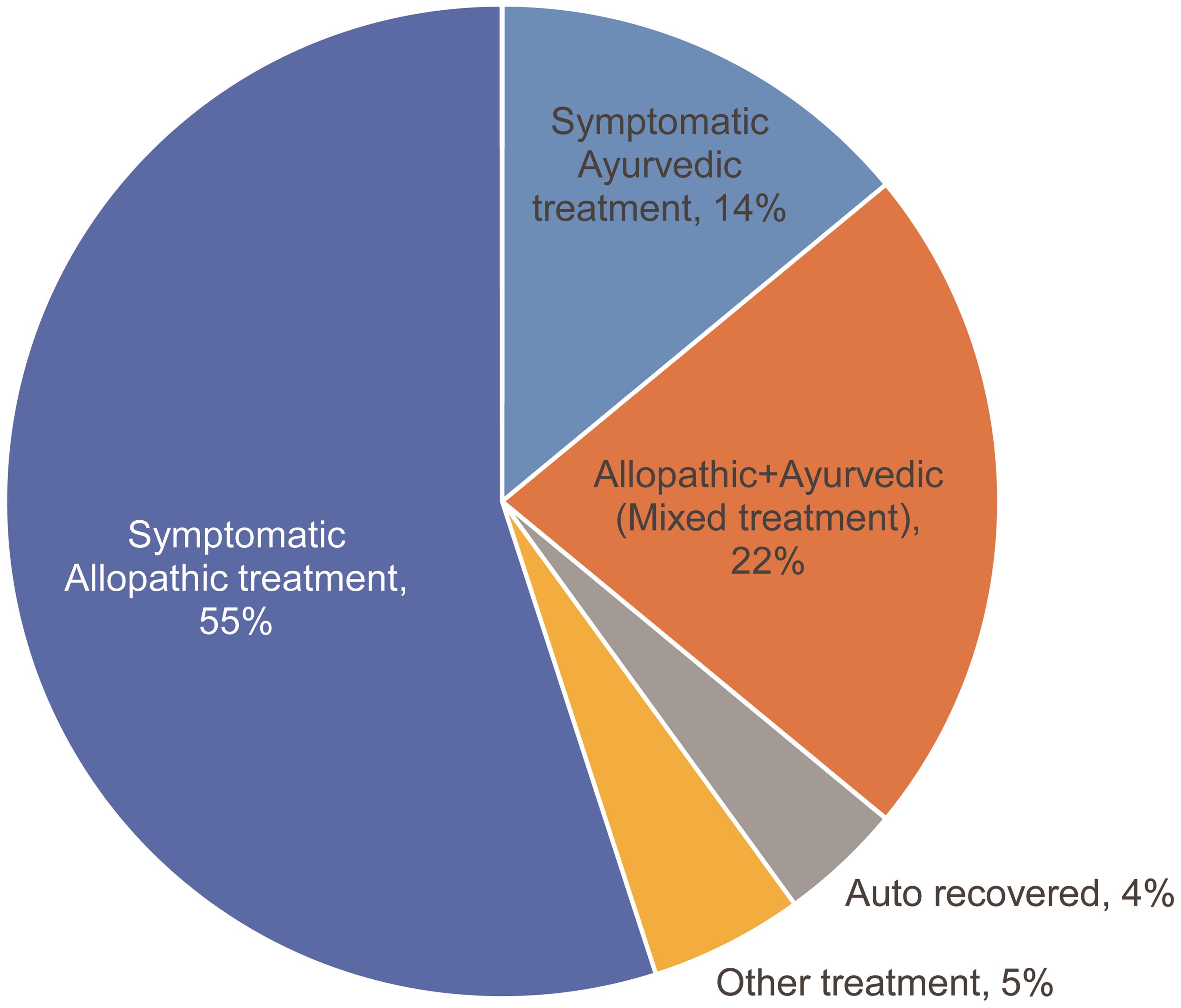Infection Pattern, Treatment Protocols and Post-COVID-19 Complications–A Survey on 706 COVID-19 Recovered Participants
引用次数: 0
Abstract
Background and objectives: The pandemic of coronavirus disease 2019 (COVID-19) has killed millions of people globally and has severely affected quality of life and global economy. The present randomized survey aimed to collect information based on vaccination, symptoms, treatments, and post-COVID-19 complications from participants that recovered from COVID-19 to find out the disease pattern, trends, and effective treatment protocols. Methods: The information from participants was collected by an online questionnaire that was circulated among the population of India through emails and social media. Results: A total of 706 responses were recorded from participants that recovered from COVID-19 from 20 Indian states. Males and females from all age groups took part in the online survey. Among them, 77% of the participants were not vaccinated and 17% were vaccinated with a single dose and 6% with a booster dose. An average of 27% of the total vaccinated participants had a comorbidity that included diabetes, hypertension, and pulmonary disease. Most of the patients with moderate to severe symptoms preferred allopathic treatment. The adoption level of allopathic treatment was significantly higher ( p = 0.001) than other treatment options. The results showed that 12% of the patients adopted the Ayurvedic treatment and 14% preferred a mixed treatment. Approximately one-third of the participants had various post-COVID-19 complications that were related to breathing and anxiety. Conclusions: The survey concluded that

706名新冠肺炎康复者感染模式、治疗方案及术后并发症调查
背景与目标:2019年冠状病毒病(COVID-19)大流行已导致全球数百万人死亡,并严重影响了生活质量和全球经济。本随机调查旨在收集COVID-19康复参与者的疫苗接种,症状,治疗和COVID-19后并发症的信息,以了解疾病模式,趋势和有效的治疗方案。方法:参与者的信息是通过电子邮件和社交媒体在印度人口中分发的在线问卷收集的。结果:来自印度20个邦的COVID-19康复参与者共记录了706份回复。所有年龄段的男性和女性都参与了这项在线调查。其中,77%的参与者没有接种疫苗,17%的人接种了单剂疫苗,6%的人接种了加强剂。平均27%的接种疫苗的参与者有合并症,包括糖尿病、高血压和肺部疾病。大多数有中重度症状的患者倾向于对抗疗法治疗。采用对抗疗法治疗的水平显著高于其他治疗方案(p = 0.001)。结果显示,12%的患者采用阿育吠陀治疗,14%的患者选择混合治疗。大约三分之一的参与者出现了与呼吸和焦虑有关的各种covid -19后并发症。结论:调查的结论是
本文章由计算机程序翻译,如有差异,请以英文原文为准。
求助全文
约1分钟内获得全文
求助全文

 求助内容:
求助内容: 应助结果提醒方式:
应助结果提醒方式:


